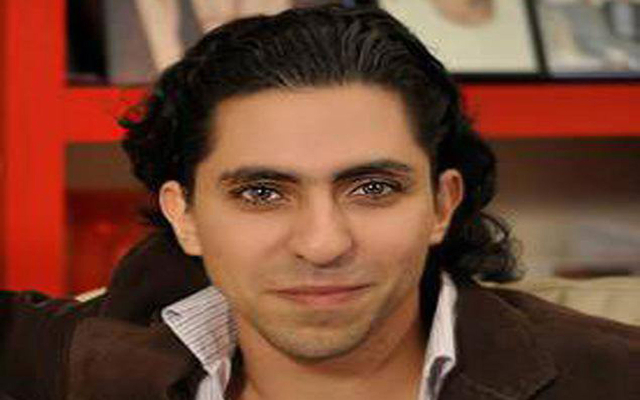Raif Badawi, a Saudi blogger, creator of the “Free Saudi Liberals” website, and advocate for freedom of expression, continues to languish in the kingdom’s Dhahban Central Prison. Saudi authorities arrested Badawi in 2012 on a charge of insulting Islam through electronic channels and brought him to court on numerous additional charges, including apostasy. He was originally sentenced to seven years in prison and 600 lashes in 2013, but then resentenced in 2014 to 1000 lashes and ten years in prison, plus a fine equivalent to US $266,000. The charges are directly linked to Badawi’s online writings on religion and politics.
Saudi officials publicly flogged Badawi on 9 January 2015, lashing him 50 times. After his first set of lashes, authorities reportedly moved Badawi to Dhahban Central Prison, north of Jeddah. Dhahban is where the Saudi government holds many prisoners convicted on terror charges, including alleged members of ISIS and Al Qaeda. Though the authorities have yet to subject Badawi to another set of lashes, his family reports that the harshness of Dhahban is taking a toll on his mental health.
The Government of Saudi Arabia does not legally recognize or protect religious freedom and prosecutes individuals for religious crimes. As part of the 2014 antiterrorism law, Saudi authorities introduced measures which criminalized acts “calling into question the Islamic religion,” and “calling for atheist thought;” a subsequent royal decree made the latter punishable by up to 20 years in prison. Through these laws, the Saudi government violates internationally recognized rights to freedom of thought and expression.
Badawi criticized the government’s position, instead encouraging Saudi society to “open its collective mind to all ideas and ideologies…to give its people the chance to listen to the opinions of others, and then examine them critically instead of rejecting them prematurely.” By prosecuting individuals like Badawi – from the poet Ashraf Fayadh to the members of independent organizations like the Saudi Civil and Political Rights Association (ACPRA) – the government has increasingly rendered the free development of Saudi civil society all but impossible.
Badawi’s dedication to free expression – and the repressive reaction of Saudi authorities – propelled his case to international attention. Badawi has won over a dozen human rights awards, including the European Union’s prestigious Sakharov Prize for Freedom of Thought in 2015. Additionally, Amnesty International’s petition for Badawi’s release received more signatures for than any other petition in the history of the organization.
Since 2004, the United States Department of State has classified Saudi Arabia as a Country of Particular Concern (CPC) for violations of religious freedom. After designating a CPC, the State Department is required to implement new policies aimed at curbing these violations. Nevertheless, the State Department, since 2006, has had an indefinite waiver on taking any actions against the country. This inaction directly undermines the stated goals of the US to promote tolerance and combat extremism in the region The US government must meet its commitments and put greater pressure on Saudi authorities to release Badawi and others detained on charges related solely to their free expression.





